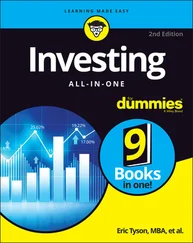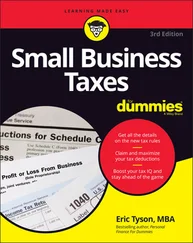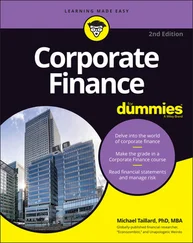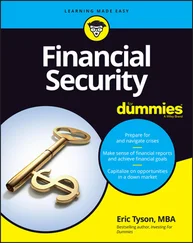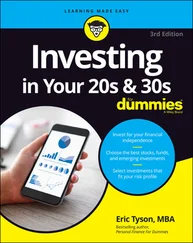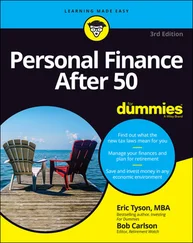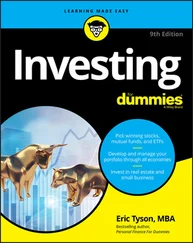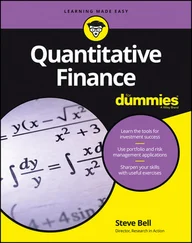Tapping investments to reduce consumer debt
If you have savings and investment balances available to pay off consumer debt, like high-interest credit-card debt and auto loans, consider doing so. Pay off the loans with the highest interest rates first.
Although your savings and investments may be earning decent returns, the interest you’re paying on your consumer debts is likely higher. Paying off consumer loans on a credit card at, say, 12 percent is like finding an investment with a guaranteed return of 12 percent — tax-free. You’d actually need to find an investment that yielded even more — around 18 percent if you’re in a moderate tax bracket — to net 12 percent after paying taxes in order to justify not paying off your 12 percent loans.
The higher your tax bracket (explained in Chapter 6), the higher the return you need on your investments to justify keeping high-interest consumer debt. This discussion refers to investments in nonretirement accounts. Unless your tax bracket drops because of an extended layoff from work or from going back to school, withdrawing money from retirement accounts is costly because of the requirement to pay current federal and state income taxes on the amount withdrawn, not to mention early withdrawal penalties.
 When using your savings to pay down consumer debts, leave yourself enough cash to be in a position to withstand an unexpected large expense or temporary loss of income.
When using your savings to pay down consumer debts, leave yourself enough cash to be in a position to withstand an unexpected large expense or temporary loss of income.
If you’ve been reading this chapter from the beginning, you know that I discuss numerous strategies for zapping your consumer debt. Now I take the discussion to a deeper level. How do you handle paying down multiple consumer-debt balances? It’s really pretty simple after you implement the advice I give up until this point in the chapter.
After meeting the minimum required monthly payment terms for each loan, I strongly advocate that you channel extra payments toward paying down those loans with the highest interest rates first. The financial benefit of doing so should be obvious. If you have one loan at a 15 percent annual interest cost and another at an 8 percent annual interest cost, you’ll be saving yourself a 7 percent annual interest cost by paying down the higher-cost loan faster.
I’m amazed at the wrong-headed advice I continue to see on this topic, especially on the Internet. One guru with no discernible training in the financial-planning/personal-finance field advises that you rank your debt payments by their total outstanding balances and that you channel extra payments to those with the lowest total balance owed. The “theory” behind this is that the psychological boost from paying down smaller debts completely will lead you to keep paying down your other debts.
In my real-world experience as a financial counselor, I’ve found folks to be intelligent and more responsive to the psychological rewards of saving money. And you best save money by paying down your highest-interest debts first.
Getting Help for Extreme Debt
More drastic action may be required if you have significant debts or simply are overwhelmed with what to do about it. In this section, I discuss getting help from a credit counseling agency and the last-resort option of bankruptcy.
If you’re seriously in debt, you may consider a credit counselor. The ads for these agencies are everywhere. Although some of these organizations do a decent job, many are effectively funded by the fees that creditors pay them. Before you hire a credit counseling agency, make sure you do your research on the company.
 Put together a list of questions to ask to find a credit counseling agency that meets your needs. Here are some key questions you can ask:
Put together a list of questions to ask to find a credit counseling agency that meets your needs. Here are some key questions you can ask:
Do you offer debt-management programs? In a debt-management program (DMP), a counseling agency puts you on a repayment plan with your creditors and gets paid a monthly fee for handling the payments. You should avoid agencies offering DMPs because of conflicts of interest. An agency can’t offer objective advice about all your options for dealing with debt, including bankruptcy, if it has a financial incentive to put you on a DMP.This creates a bias in their counsel to place debt-laden folks seeking their advice on their debt-management programs wherein the consumer agrees to pay a certain amount per month to the agency, which in turn parcels out the money to the various creditors. Agencies typically recommend that debtors go on a repayment plan that has the consumer pay, say, 3 percent of each outstanding loan balance to the agency, which in turn pays the money to creditors. Although credit counseling agencies’ promotional materials and counselors highlight the drawbacks to bankruptcy, counselors are reluctant to discuss the negative impact of signing up for a debt payment plan.
What are your fees, including setup and/or monthly fees? Get a specific price quote and contract in writing. Avoid any credit counseling service that charges a high upfront fee before it provides any services. And watch out if the service tells you to stop paying your bills; it may take your money and run while your credit gets ruined.
Are you licensed to offer your services in my state? You should only work with an agency licensed to operate in your state.
What are your counselors’ qualifications? Are they accredited or certified by an outside organization? If so, by whom? If not, how are they trained? Try to use an organization whose counselors are trained by a nonaffiliated party.
What assurance do I have that information about me will be kept confidential and secure? This information includes your address, phone number, and financial information. Reputable agencies provide clearly written privacy policies.
How are your employees compensated? Are they paid more if I sign up for certain services, if I pay a fee, or if I make a contribution to your organization? Employees who work on an incentive basis are less likely to have your best interests in mind than those who earn a straight salary that isn’t influenced by your choices.
When the amount of your high-interest consumer debt relative to your annual income exceeds 25 percent, filing bankruptcy may be your best option. Like any tool, it has its pros and cons.
Bankruptcy’s potential advantages include the following:
Certain debts can be completely eliminated or discharged. Debts that typically can be discharged include credit card, medical, auto, utilities, and rent. Eliminating your debt also allows you to start working toward your financial goals, such as saving to purchase a home or toward retirement. Depending on the amount of outstanding debt you have relative to your income, you may need a decade or more to pay it all off.Debts that may not be canceled through bankruptcy generally include child support, alimony, student loans, taxes, and court-ordered damages (for example, drunk-driving settlements).
Certain assets are protected by bankruptcy. In every state, you can retain certain property and assets when you file for bankruptcy. Most states allow you to protect a certain amount of home equity; some states allow you to keep all of your home equity regardless of its value. Additionally, you’re allowed to retain some other types and amounts of personal property and assets. For example, most states allow you to retain household furnishings, clothing, pensions, and money in retirement accounts. So don’t empty your retirement accounts or sell off personal possessions to pay debts unless you’re absolutely sure that you won’t be filing bankruptcy.
Читать дальше
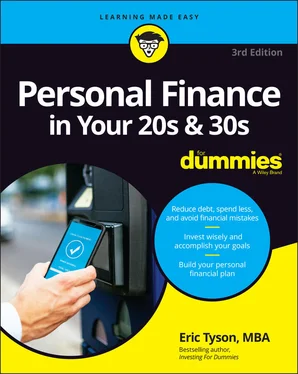
 When using your savings to pay down consumer debts, leave yourself enough cash to be in a position to withstand an unexpected large expense or temporary loss of income.
When using your savings to pay down consumer debts, leave yourself enough cash to be in a position to withstand an unexpected large expense or temporary loss of income. Put together a list of questions to ask to find a credit counseling agency that meets your needs. Here are some key questions you can ask:
Put together a list of questions to ask to find a credit counseling agency that meets your needs. Here are some key questions you can ask:
